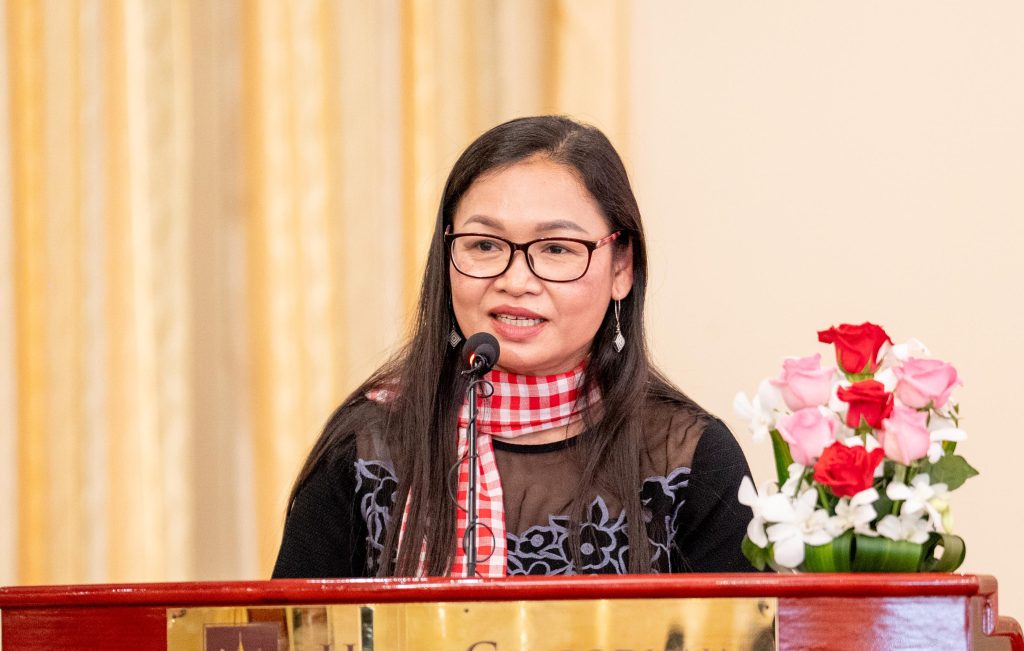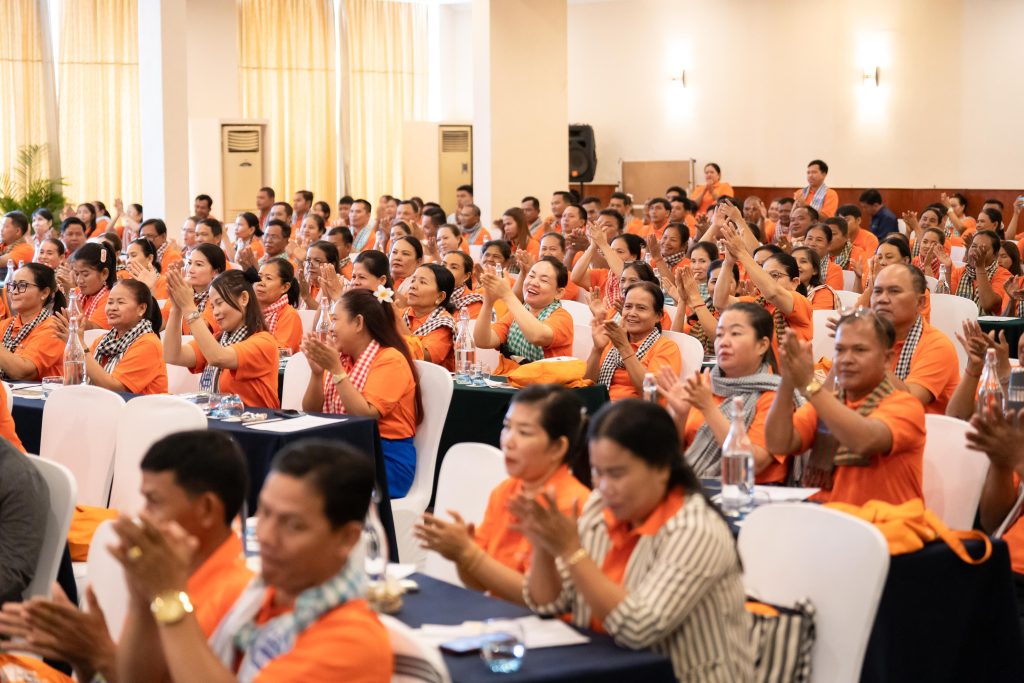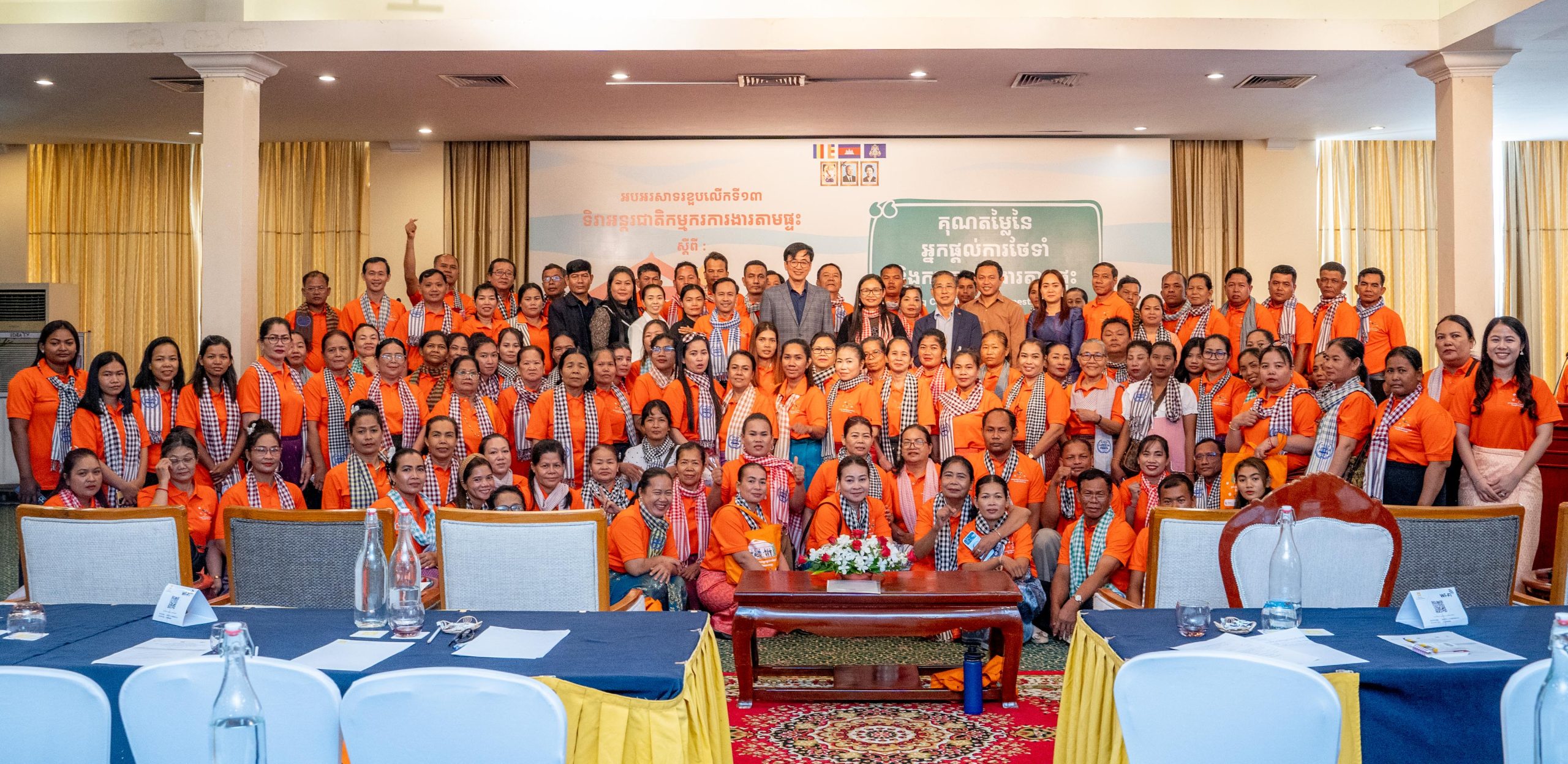Cambodia Investment Review
The 13th anniversary of International Domestic Workers’ Day was celebrated today in Phnom Penh, focusing on the theme “Value Caregivers and Domestic Workers.” Organized by Oxfam and the Independent Democracy of Informal Economy Association (IDEA), the event underscored the importance of transitioning informal workers to formal employment to boost Cambodia’s economy and enhance worker protection.
The forum, attended by approximately 270 participants including street vendors, representatives of household employers, members of transport workers, government officials, and development partners, provided a platform to discuss the current situation of domestic workers, their challenges, and the need for comprehensive social protection policies.
Address Inequality Among Workers & Vulnerable Population Groups
Ms. Sophoan Phean, Oxfam National Director, emphasized the organization’s commitment to reducing poverty and promoting social justice. “Oxfam’s mission is to contribute to building a society that is free of poverty and injustice. Collaborating with the Royal Government of Cambodia and relevant stakeholders, we aim to diminish poverty and address inequality among workers and vulnerable population groups,” she stated. “Domestic workers are an essential part of the labor force, contributing significantly to social well-being, employment flows, and the national economy. Transitioning them to formal employment will not only improve their economic situation but also prepare them to face economic crises and escape poverty.”

Mr. Pov Von, President of IDEA, highlighted the organization’s efforts since 2005 to improve labor conditions, including those of domestic workers. “IDEA has been encouraging positive changes in labor conditions and incorporating domestic workers under union law. We coordinate the Cambodian Domestic Workers Network, consisting of 20 domestic worker groups, to initiate dialogues with government agencies and household employers for greater recognition of their rights and access to social protection and decent living conditions,” he said.
Read More: ‘Speak Up’ Campaign Says Factories Must Invest More In Safe Transport For Workers
The transition from informal to formal employment is critical for economic growth and worker protection. Formal employment provides workers with access to social protection systems, healthcare benefits, workplace injury insurance, and pension benefits, ensuring their economic security and well-being. For employers, formalizing their workers can lead to a more stable and productive workforce, ultimately benefiting the broader economy.

Ms. Sreymom Yong, a chef for a family in Phnom Penh and a domestic worker for over five years, shared her experiences advocating for better working conditions and benefits. She explained why she preferred an NSSF card over private insurance: “NSSF is more beneficial than private insurance. I can access healthcare benefits, workplace injury insurance, and pension benefits. As an employer, you can pay the contributory fee on a yearly and monthly basis.” Her successful effort to register and pay her NSSF contributory fee exemplifies the positive impact of transitioning to formal employment.
There Are Approximately 240,000 Domestic Workers In Cambodia
According to a 2018 International Labour Organization (ILO) report, there are approximately 240,000 domestic workers in Cambodia. Their incomes significantly contribute to household revenues and play a vital role in poverty eradication. However, informal workers face numerous challenges, including income insecurity, health issues, discrimination, and unsafe working conditions. Transitioning these workers to formal employment would address these challenges, providing them with stable incomes, better working conditions, and social protection.
Oxfam and IDEA stressed the importance of recognizing domestic employment as equal to other types of labor, deserving equal access to social protection systems and services. They urged the Royal Government of Cambodia to ratify ILO Convention 189 on domestic workers’ rights to decent work and take necessary steps to support national implementation. This move is crucial for Cambodia to realize its Sustainable Development Goals and ambition to become an upper middle-income country by 2030 and a high-income country by 2050.

Transitioning informal workers to formal employment requires comprehensive policies and concerted efforts from all stakeholders. Government ministries, lawmakers, employers, and development partners must collaborate to create an enabling environment for this transition. This includes ensuring legal recognition, providing access to social protection, and promoting decent working conditions for all workers.
The event highlighted the need for gradual yet decisive steps to transition informal workers to formal employment. Such a transition not only enhances worker protection but also contributes to economic growth and social development. By recognizing the significant contributions of domestic workers and other informal workers, Cambodia can build a more inclusive and resilient economy, ensuring that no worker is left behind.





